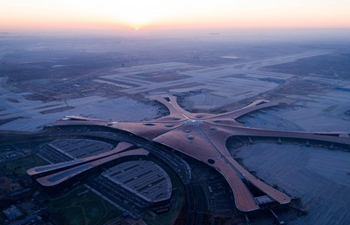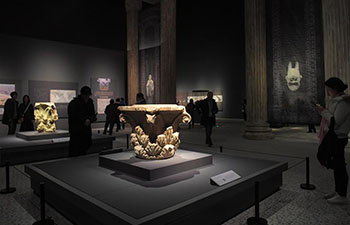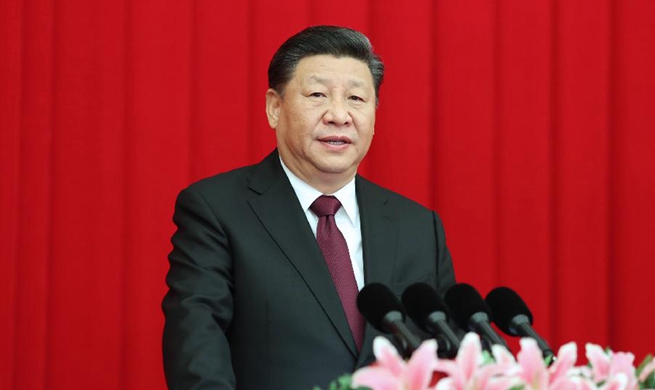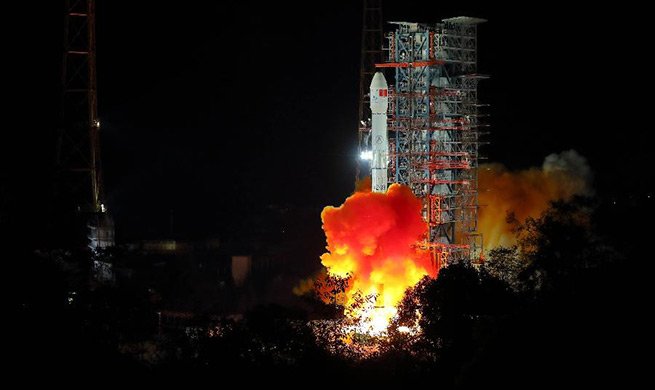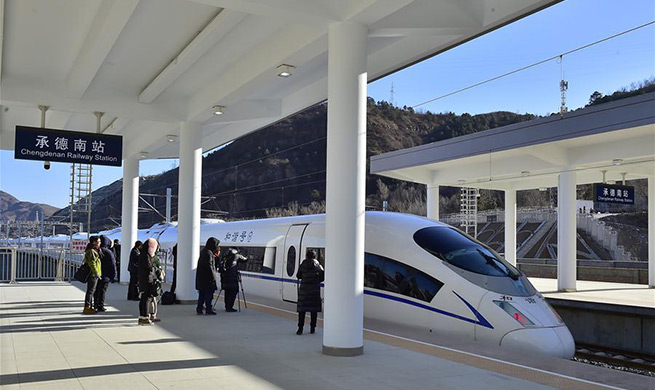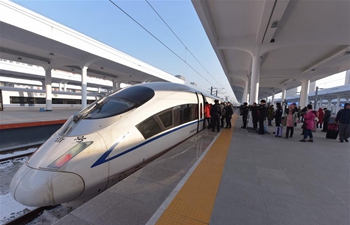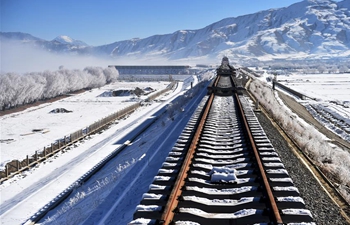by Xinhua writer Zhang Xin
BEIJING, Dec. 30 (Xinhua) -- Since the end of World War II, the transatlantic alliance between the United States and Europe has been the cornerstone of the Western world.
Over decades, the European allies have habitually relied on Washington for security guarantee within NATO so Europe can develop its economy and proceed with integration.
However, the U.S.-Europe romance has been fading away as it seems Washington now wants to ditch such a tradition, and recalibrate their roles in the partnership.
Under "America First" banner, the alliance skeptics in Washington accused the EU of taking "advantage of the United States," deemed the NATO alliance "as bad as NAFTA," and pressed the European nations to grow their defense expenditure.
On trade, though, the two sides have technically been in a detente since U.S. President Donald Trump and European Commission President Jean-Claude Juncker agreed in July to work toward "zero tariffs" on industrial goods, yet the truce is like a house built on sand.
Earlier this month, U.S. ambassador to the EU Gordon Sondland accused Europe of disregarding all the goodwill built up since the Marshall Plan and of frustrating U.S. efforts to redress the trade imbalance.
He warned that unless the EU gives ground, Washington will employ a "multitude of tools available ... to make it more difficult for Europe to sell its products to America."
Washington's decision to quit the Iran nuclear deal is another stab to the transatlantic bond, as the hard-won pact is very important to Europe.
Brussels believes the nuclear deal can play a key role in helping promote peace and stability in the Middle East. Also, investors from Europe have begun to swarm into Iran after signing the deal in 2015.
Now that Washington has walked away from the nuclear pact in which the European countries have invested so much to bring to life, and reinstated the sanctions against Tehran, the unity across the Atlantic has been deeply eclipsed.
In the face of such a capricious Washington, the Europeans have been trying to handle one peak of frustration after another. "With friends like that, who needs enemies?" EU Council President Donald Tusk complained in May at a gathering of European leaders.
German Chancellor Angela Merkel is more explicit. She urged that "Europe can no longer rely on the U.S. ... It must take its fate into own hands."
Merkel's appeal may be a judgment call Europe has to make anyway. Yet it is not a turkey shoot as the EU is now at a historic crossroads.
The rise of populism and protectionism in the continent has triggered the excruciating Brexit process, helped elect right-wing politicians in Italy and Germany, and led "Yellow Vests" protesters onto the streets of France.
For now, the cold, hard fact for the EU is that it may still need to scramble to maintain such a thorny alliance. But in the long run, it needs to introduce necessary reforms, defense ones in particular, so that it can not only stand on its own feet but also on an equal footing with the United States.
While marking the centenary of the World War One Armistice last month, French President Emmanuel Macron has called on the Europeans to have their own army.
Macron's proposal may not happen in the near future, it could be seen as a sign that the bloc of nations have begun to confront the reality of a post-Atlantic era. For both sides across the Atlantic, neither can now return to the old days.




